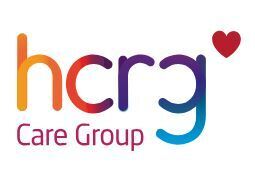Special Educational Needs and Disabilities (SEND)
at Aloeric Primary School
What are Special Educational Needs and Disabilities?
Under the SEND Code of Practice (DfE, 2014), a child is deemed to have Special Educational Needs or Disabilities, or SEND, if he or she has ‘significantly greater difficulty in learning than the majority of others of the same age’, or his or her disability ‘prevents or hinders him or her from making use of facilities of a kind generally provided for others of the same age in a mainstream school’. Special educational provision is needed for him or her, over and above that which can be met through high quality classroom teaching and differentiation.
The broad areas of need are identified as:
|
communication and interaction |
cognition and learning |
social, emotional and mental health difficulties |
sensory and/or physical needs |
 |
 |
 |
 |
They may be for a short period or throughout a child’s educational life. They may be identified before a child has even entered school or they may come to be recognised at a specific point in their education.

The SEND Code of Practice sets out statutory guidance for schools. A revised SEND Code of Practice was implemented in September 2014, with the main aim of developing better partnerships between children, parents/carers, educational settings, health professionals and social care.
The revised SEND code of practice can be downloaded here: SEND Code of Practice


At Aloeric Primary School, we have a large team of dedicated and experienced staff who support children with Special Educational Needs. This includes:
- Class teachers
- SENDCO
- Members of the Senior Leadership team
- Teaching Assistants (TAs and HLTAs)
- Teaching Assistants with a specialism, for example, Emotional Literacy or Speech and Language
- Midday Supervisory Assistants (MDSAs)
We are also fortunate to have excellent relationships with the:
- Specialist SEN Service (SENSS),
- Educational Psychologist,
- Behaviour Support Service (BSS),
- Speech and Language Therapists (SALT),
- Occupational Therapists (OT)
- Sensory Impairment Service
who we work in partnership with to support our pupils with SEND.
We also collaborate closely with the SEND Lead Workers at the Local Authority.
We recognise that children’s needs are most effectively met by working in collaboration with parents to secure the best outcomes for their child. This takes many forms for example individual review meetings, My Support Plan meetings, multi-agency meetings, parent support from our Welfare Officer, home-school liaison books or simply a quick telephone call or email.
If you have any questions, the first person to contact would be your child's class teacher.
You are also very welcome to contact our SENDCO, Charlotte Goodyear

Useful documents for SEND
Aloeric Primary School's SEND Information Report provides an overview of what we offer for children with SEND can be found here: Aloeric Primary School Information Report.docx.pdf4
More information on what is universally available to all our children a be found here.
Wiltshire’s Ordinarily Available Provision for All Learners can be found here:
https://localoffer.wiltshire.gov.uk/article/7638/OPAL-Introduction
The SEND Policy- under Statutory Information Tab
Wiltshire Council’s Local Offer which is an overview of the range of provision for children with SEND in the local area can be found by clicking on this link: localoffer.wiltshire.gov.uk
Where can I find support as a parent of a child with SEND?
Wiltshire Parent Carer Council
The Wiltshire Parent Carer Council is an independent, voluntary organisation which is managed and run by parent carers, for parent carers. They have a membership in excess of 1600 parent carers across Wiltshire whose children range in age (0-25yrs) and in the type of special educational needs and/or disabilities they have. These include mental health, physical, sensory, learning, communication, challenging behaviour, autistic spectrum disorders and health conditions that require complex care.
Wiltshire SENDIASS (formerly WISA) is the statutory information, support and advice service for Wiltshire. We offer free, independent and impartial information relating to education, health and social care for children and young people (0-25) with Special Educational Needs and/or disabilities (SEND), and their families, to empower them to make appropriate and informed choices.
IPSEA advises families whose children have all types of SEN/disability, including behavioural problems, communication difficulties, learning disabilities and autism. IPSEA often helps families before their child has even been diagnosed. IPSEA's legally based advice gives parents the confidence to exercise their rights.
HCRG Single Point of Access
The new Single Point of Access (also known as SPA) – a single website, telephone number, email and postal address for all referrals and questions about the services Virgin Care runs on behalf of the local authority and the NHSThe SPA will be the first point of contact for children, young people, families, GPs and health and social care professionals to reach and access child health guidance and support from Wiltshire Children’s Community Services.
Funded by Wiltshire Council, Spurgeons children’s centres are places where parents of children aged 0–5 years can share the challenges and joys of parenthood. The centres offer a range of activities and support services to help you with all aspects of parenting, helping you make sure your child gets the best start in life.
I CAN (The children’s communication charity) website I CAN
Afasic (Support for parents/carers of children and young people with speech, language and communication needs)
The National Autistic Society is the leading UK charity for autistic people (including those with Asperger syndrome) and their families.
ADHD Foundation Neurodiversity Charity
The ADHD Foundation Neurodiversity Charity is an integrated health and education service offering a unique lifespan – strength based service, for the 1 in 5 people who live with ADHD, Autism, Dyslexia, Dyspraxia, Dyscalculia and Tourette’s syndrome.











